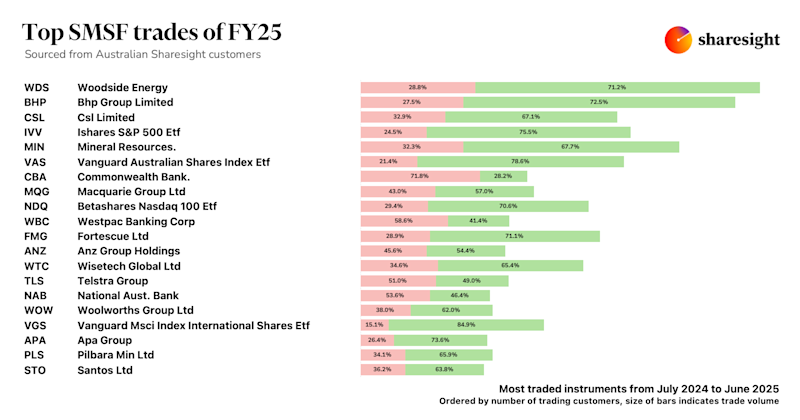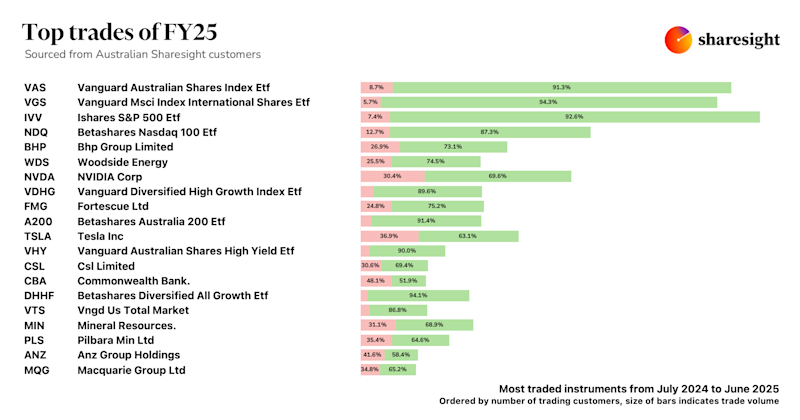Where is the Uber of Australian wealth management?
Recently on the CuffeLinks blog, Graham Hand posted a thoughtful piece on what it might take to truly disrupt the Australian financial services industry. He asks whether or not there is an Uber or Amazon of wealth management.
Hand suggests that true disruption needs to be more than just online “robo-advice,” and rightly points out that even if these businesses attract billions, this would merely dent the $2 trillion superannuation market.
Ultimately, his take is that a true disruptor will need to upend all facets of wealth management (advice, admin, asset management) simultaneously and be price-led, a trusted brand, and non-reliant on the traditional distribution model. He concludes:
I don’t see how any company can make wealth management sufficiently exciting for enough people to grow a market share of 5 to 10% in the next few years. To use Google’s test, what problem will the disruptor solve in such a novel way that hundreds of billions will divert from incumbents? I hope I’m wrong because it would be fun to watch.
Graham Hand, CuffeLinks
I share in Hand’s hope for one true disruptor, and don’t see it on the horizon either. However, I do think disruption will happen, albeit differently.
Let's remind ourselves that no one has managed to do this yet in the biggest, richest, and lowest-cost consumer market of them all: the United States. Over there, online trading is already dirt-cheap (free even!). Companies offering online advice are well-established (Wealthfront), with more on the way from big-time brands (Fidelity).
So why haven’t we seen a disruptor?
One, early adopters of tech-based solutions to old-school problems tend to be young people , who tend to not have money, who tend to not contribute to their retirement (401k) accounts (it’s not compulsory). It’s difficult to convince even educated young professionals to invest. Unfortunately, most financial education in the US begins and ends with the human resources department of companies who offer retirement plans. As is with health care now in the US, you could argue that this shouldn’t be their responsibility at all.
Two, "solutions" are coming from the staid financial institutions that got us here in the first place. They might succeed in convincing their existing client base to sign up to something online, but it's hard to see a 25 year-old downloading the Fidelity Investments app to their mobile. Plus, it's very difficult to "start-up" a bank, especially post-GFC. The capital requirements are massive. Tellingly, it's taken even Walmart with all their lobbying power, years to launch a retail banking product.
Three, taxes. Not high taxes, but a perplexing tax code. The US tax system is in dire need of an overhaul. The less you know about it, the worse off you are, which disproportionally impacts those with less skin in the game. It's virtually impossible to file a tax return on your own. Working out state and federal taxes on even a simple ETF holding is complex (even for me and I’ve worked in this area for a decade).
Four, the actual process of moving money between accounts or from one institution to the next is excruciating. Most payments are still made via physical cheque (which take 7 days to clear). The banks and the old-fashioned Automatic Clearing House (ACH) are to blame. If disruption has any chance at all, it must be easier for people to divert funds with one click. Even something as basic as NAB's UBank would be a game-changer in the US.

Meanwhile, back home in Australia, items 1, 3, and 4 are already solved. Compulsory super means the piping is laid and everyone is contributing. The tax regime is far simpler, and moving money is a breeze. Superannuation is a model policy and no doubt improves the financial lives of millions. But it breeds a lethargic industry and middling returns for savers. With so much money automatically flowing into the very institutions likely to lose as a result of disruption, it’s hard to see them changing anything (hello number 2 above).
So disruption hasn't worked in the biggest market and it hasn't worked in one with the infrastructure already in place. But maybe comparing wealth management to Google, Amazon, and Uber isn't quite right.
Those tech giants succeed based on an our short-term needs. They're transactional and expertly deliver a means to an end. I want information, I search (free) on Google. I want to buy something I shop (free) at Amazon and know that I'll get the best price. I need to get from point A to B, I check to see where the Ubers are idling in real-time.
Conversely, wealth management is boring, long-term, and intangible. It's impossible for me to compare a bad experience with a good one, and even if I can do some comparative analysis it doesn't crystallise until years down the road. I know what not getting a taxi is like in Sydney on a Friday night, and I know how satisfying it is to call an Uber - problem solved.
Instead, change might come incrementally, and disruption might just come from the many smaller companies taking on specific parts of the traditional vertically-aligned wealth management stack.
Today, an investor using Sharesight can do SMSF admin using ESUPER, get research from Intelligent Investor, do accounting with Xero, trading with CMC, place a portion of their assets in a Six Park portfolio, and share access with their financial adviser. And the critical factor here is that these solutions are investor-bought, and investor-driven. People are finding these solutions on their own and in turn demanding more from their advisers and accountants.
That's great news for investors already in the know, but to Hand's original point it's still difficult to see how the rest of the population gets sufficiently excited enough to revolutionise wealth management. Here's hoping more and more apps and services join the fight!
FURTHER READING

Sharesight users' top 20 trades – June 2025
Welcome to the June 2025 edition of Sharesight’s monthly trading snapshot, where we look at the top buy and sell trades by Sharesight users in all markets.

Top SMSF trades by Australian Sharesight users in FY24/25
Welcome to our annual Australian financial year trading snapshot for SMSFs, where we dive into this year’s top trades by Sharesight users.

Top trades by Australian Sharesight users in FY24/25
Welcome to the FY24/25 edition of our Australian trading snapshot, where we dive into this financial year’s top trades by Sharesight users.